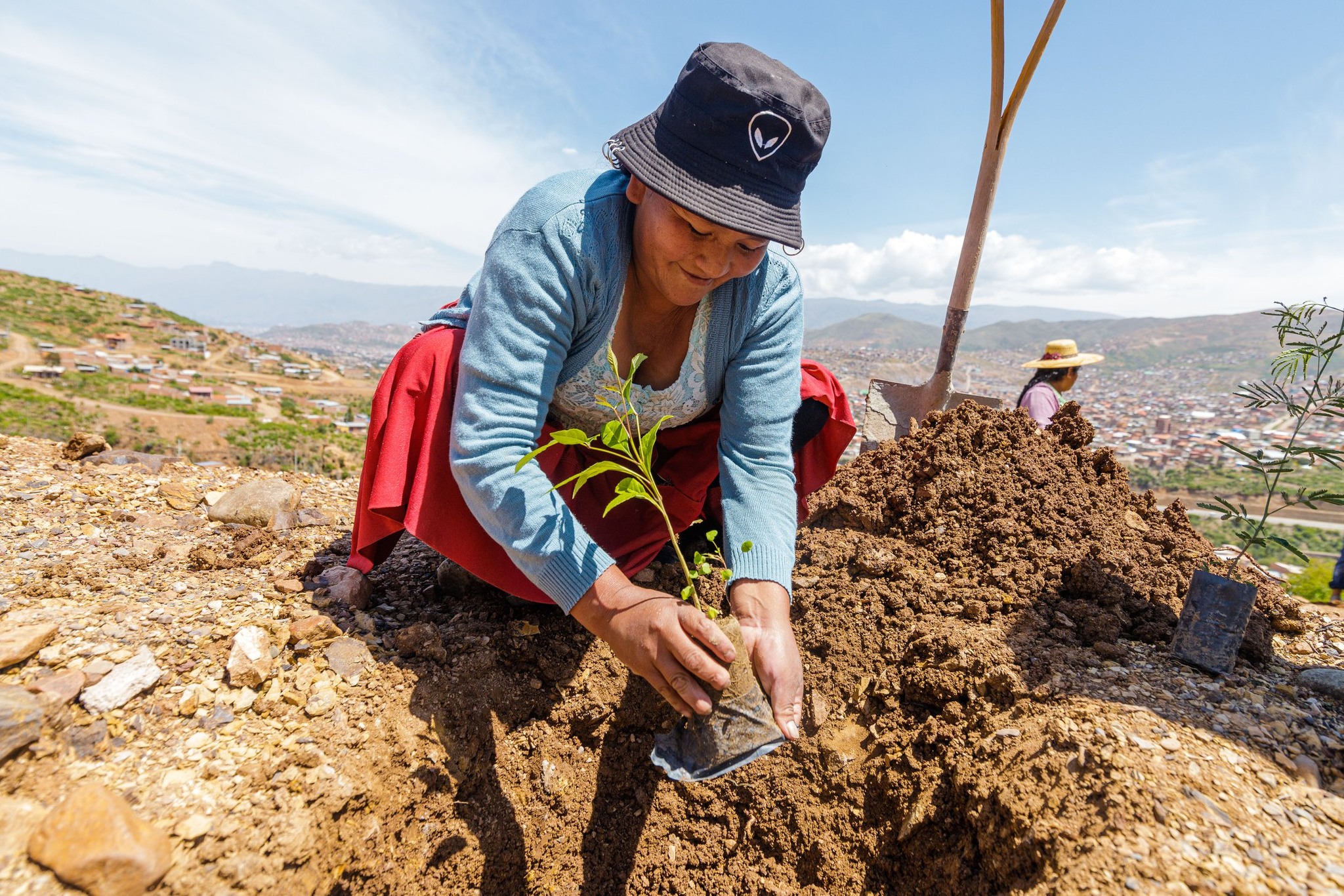A Global Crisis
1 in 4 people doesn't have access to safe drinking water.
Nearly 1 in 2 people doesn't have a decent toilet.
That's unacceptable.
Whether it's a drink of water or a working toilet, water and sanitation are basic needs we often take for granted. But globally, over 2.2 billion people don't have clean drinking water access, 3.5 billion don't have a decent toilet, and 2.3 billion lack basic handwashing facilities.¹ This is the global water crisis.
Explore how water and sanitation access – and changing these numbers – are at the core of equality and opportunity for our planet.
7 out of 10 households
Globally, women and girls are responsible for water collection in 7 out of 10 households without water at their homes.²
Each step a woman or girl takes to collect water is a step away from education, work, safety, and leisure. This is because women's roles in water access for their families and communities are entwined with the inequality that leaves them walking miles each day for water, missing school or work because of periods, and unable to take on economic opportunities because of the demands of collecting water.
When it comes to sanitation, access to proper bathrooms in homes and schools provides privacy, safety, and dignity – especially for those who need to manage their periods or pregnancies.
We know it doesn’t stop with access to water, sanitation, and hygiene. Women must play a central role in the plans, designs, and implementation of these services to ensure their specific needs are met.
1.4 million deaths
1.4 million deaths could be prevented each year with safe water, sanitation, and hygiene access.³
Without access to clean water, people resort to using and drinking water from contaminated sources, leading to preventable diseases like diarrhea and cholera. These illnesses cause families to lose time and money, and can even lead to death.
And when health clinics lack adequate water and sanitation, they can’t provide care safely and hygienically. According to the World Bank, hygiene promotion is the most cost-effective health intervention.⁴
We know it doesn't stop at using water or a bathroom – the entire cycle must be considered. By helping communities protect and preserve their water sources, plan waste management solutions when there are no sewers, and embed hygiene education into classrooms and events, people can stay healthy and thrive.
$86 billion
Tackling diarrhea worldwide can generate $86 billion per year in increased productivity and reduced health costs.⁵
High poverty often overlaps with low access to drinking water and sanitation.⁶ Water is also an essential input in production, and its reliable supply has a significant impact on economic growth, job creation, and wages.⁷ Access to safe water and well-managed bathrooms can lead to improved health, saved time, and further education – all leading to more economic opportunities for people.
We know it doesn't stop at having access to water or a bathroom – Water For People is creating jobs and leading trainings so that people's businesses contribute to the longevity of water and sanitation services in their communities and establish economic stability for their families.
447 million children
Lack a basic drinking water service at their school. Nearly half of the schools in the world do not have handwashing facilities with soap and water.⁸
Time lost from fetching water or being sick from waterborne diseases keeps many children out of school. Without kids being able to advance their education, cycles of poverty often continue generation after generation. Once schools and families have water and sanitation facilities and menstrual hygiene resources for girls, children can stay in school and pursue their education.
While safe water and bathrooms are critical for schools, so is knowledge and awareness about hygiene. We support schools in implementing curriculums around health, handwashing, and proper care for the new water and sanitation facilities. Kids then take their knowledge and good hygiene habits home – spreading awareness and healthy behaviors to their families.
Water is at the Center of Climate Change
Roughly 90% of climate disasters are water-related.⁹ We’re seeing climate change already affecting water access for people through more extreme flooding and droughts. Low- and middle-income countries have the most to lose in the face of climate disasters. These communities are also the ones who contribute the least to climate change. We’re building resilience so communities and their water sources survive climate change.

"Water touches every aspect of development and it links with nearly every Sustainable Development Goal. It drives economic growth, supports healthy ecosystems, and is essential and fundamental for life itself."
– The World Bank Group, Water
Join Us
While the world is behind in addressing this crisis, Water For People is actively changing these numbers. Because we know water and sanitation access is possible, for Everyone Forever.
¹ WHO/UNICEF Joint Monitoring Program (JMP), 2023 household data.
² WHO/UNICEF Joint Monitoring Program (JMP), Progress on household drinking water, sanitation, and hygiene (WASH) 2000-2022: Special focus on gender, 2023.
³ World Health Organization, "Improving access to water, sanitation and hygiene can save 1.4 million lives per year, says new WHO report," 2023.
⁴ World Bank, Disease Control Priorities: Reproductive, Maternal, Newborn, and Child Health, 2016.
⁵ The Economist, "Harnessing the economic benefits of investment in water, sanitation, and hygiene in Africa," 2023.
⁶ ⁷ The World Bank Group, "Water for Shared Prosperity," 2024.
⁸ WHO/UNICEF Joint Monitoring Program (JMP), Progress on drinking water, sanitation and hygiene in schools, 2023.
⁹ United Nations Environment Programme, Climate Change and Water-Related Disasters, 2023.
